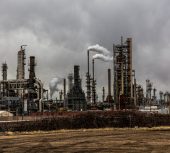The haunting memory of the Deepwater Horizon disaster in 2010 has emphasized the need for effective strategies to address the aftermath of oil spills. Now, recent studies from an international consortium suggest we might find solutions within nature itself, thanks to biosurfactants. These organic compounds offer a promising, environmentally-friendly substitute to traditional chemical dispersants.
The Ongoing Battle Against Pollution
Annually, our oceans are burdened with a massive 1500 million liters of oil, causing significant ecological challenges. The addition of harmful toxins, such as polycyclic aromatic hydrocarbons, endangers marine life and ecosystems. While tankers and oil rig mishaps are notable culprits, the global impact is vast and worrisome.
Historically, the strategy to counteract these spills has involved chemical dispersants. The goal? Break down the oil, prevent its spread, and facilitate its microbial digestion, with specific microbes feeding on and neutralizing oil constituents. However, as pointed out by Professor Sara Kleindienst, "Some of these chemicals can paradoxically slow down the very microbial processes they aim to facilitate."

The ongoing fight against oil leaks into the ocean continues
Harnessing Mother Nature's Remedies
In this challenging scenario, biosurfactants shine as a beacon of hope. Derived from microorganisms, these compounds make oil components more accessible for microbial consumption, thereby accelerating the oil degradation process.
In an innovative experiment using North Sea seawater, Professor Sara Kleindienst, in collaboration with experts Professor Andreas Kappler (University of Tübingen) and Professor Samantha Joye (University of Georgia), ventured to contrast the capabilities of biosurfactants against traditional dispersants.
Their laboratory simulation, which involved creating controlled oil spill conditions using North Sea water, yielded exciting results. "Our biosurfactant-treated simulations revealed markedly higher microbial activity and protein generation," shared Prof. Lu Lu, a key researcher in the study.
Additionally, the introduction of biosurfactants appeared to activate a diverse set of microbial agents tailored for oil degradation, suggesting a broader and potentially more effective cleanup action.
Towards a Cleaner Tomorrow
As we strive to mitigate the environmental fallout of oil spills, biosurfactants stand out as a beacon of hope for a more eco-friendly response strategy. Their potential for applications, particularly in sensitive areas like the North Sea, could redefine our approach to such environmental crises.
In the words of Prof. Sara Kleindienst, "We envision a future where we harness the power of biosurfactants, not just for effective oil spill response, but also with an eye on environmental conservation."
In an age where sustainable solutions are paramount, turning to nature's toolbox seems more pertinent than ever. The emergence of biosurfactants as potential saviors in oil spill clean-up reaffirms a timeless truth – nature often holds the key.
©GlobalCO2.uk





